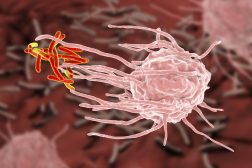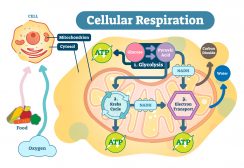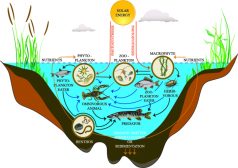Definition
noun, plural: coral polyps
(marine biology) An invertebrate species of the class Anthozoa that may live either individually (as in a solitary mushroom coral) or as a colony (as in a coral reef)
Supplement
A coral reef is a colony of sessile adult coral polyps connected to each other. There may be hundreds or thousands of coral polyps in a compact colony that forms the reef. Each coral polyp is an individual invertebrate that has a sac-like body. It has an opening or mouth (called a coelenteron) surrounded by tentacles. The coelenteron serves both as an oral cavity where food enters and as a passageway for the release of digested wastes. The tentacles surround the coelenteron. The tentacles capture food from water and bring it into its mouth. The tentacles are described to be stinging due to the presence of nematocysts (or cnidae). Nematocysts are coiled stinging cells that are ejected in order to entangle and poison a prey (e.g. copepods).
Coral polyps in a reef are sessile. They get calcium and carbonate ions from their marine habitat in order to build a hard skeleton made of limestone (or calcium carbonate). The skeleton provides them protection since the body of a coral polyp is soft and delicate. The body of coral polyps is clear. However, because of their symbiosis with algal species such as zooxanthellae their body tends to show colors due to the pigments of zooxanthellae that live within the cells of the clear tissues of the coral polyp.
See also:
Dictionary > Coral polyp
You will also like...

Homeostasis of Organism Water Regulation
Osmoregulation is the regulation of water concentrations in the bloodstream, effectively controlling the amount of water..

Biological Cell Defense
Organisms employ different strategies to boost its defenses against antigens. Humans have an immune system to combat pat..

Cell Respiration
Cell respiration is the process of creating ATP. It is "respiration" because it utilizes oxygen. Know the different stag..

Ecological Research: Measuring & Analysis
This lesson is about the methods used for ecological research, such as quadrat and transect sampling, canopy fogging, an..

Freshwater Producers and Consumers
Freshwater ecosystem is comprised of four major constituents, namely elements and compounds, plants, consumers, and deco..

Leaves
Leaves are the major photosynthetic organ of a plant. Apart from that, they are also crucial to water movement. In this ..

